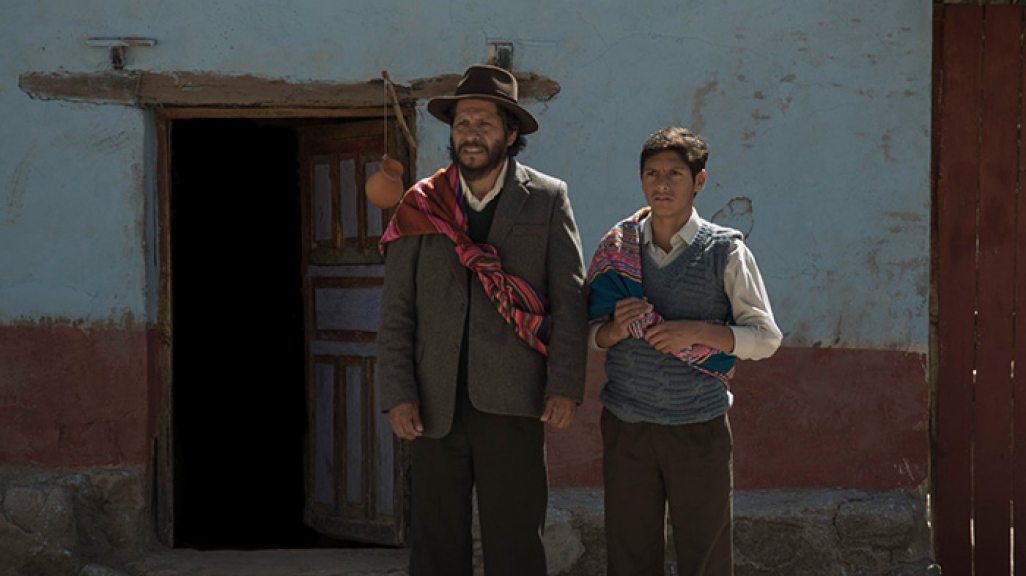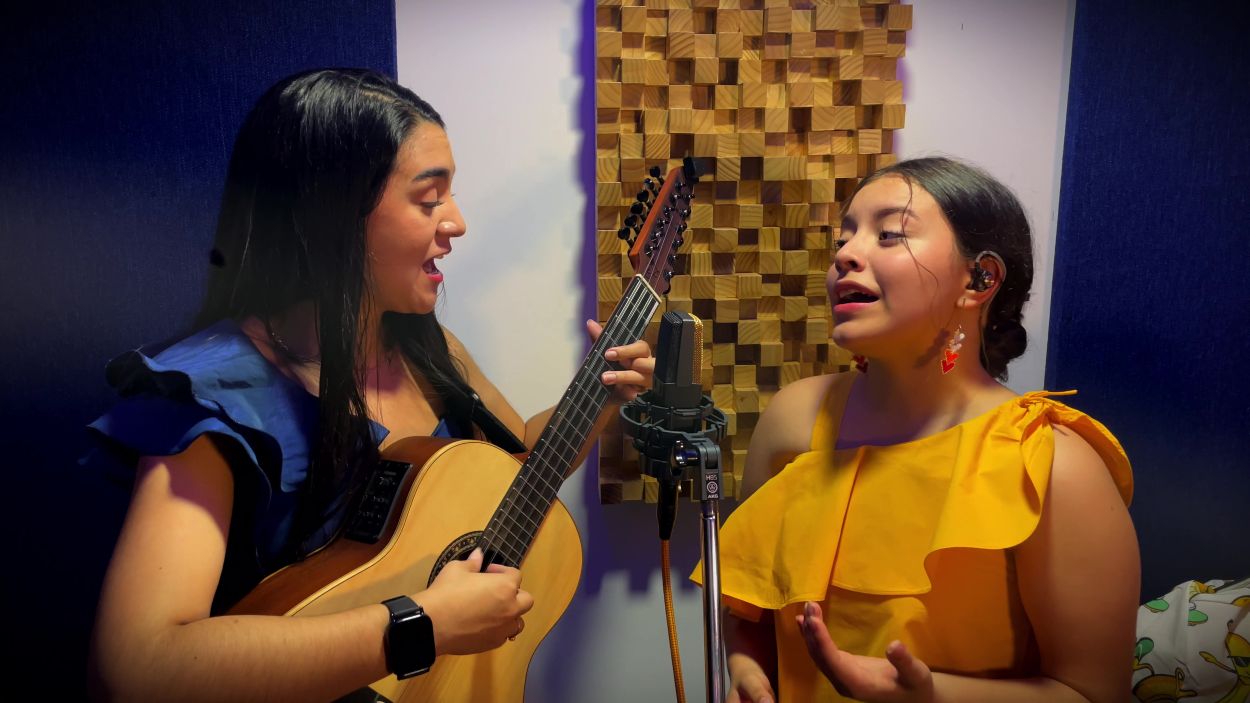A Few of Our Favorite Things in 2019
A Few of Our Favorite Things in 2019
From a book of cross-border children’s poetry to a Quechua-language film to a “gloriously demented” Brazilian Western, here’s what we enjoyed this year.
If we’ve learned one thing from the last few tumultuous years, it’s important to step away from the news and take in the remarkable creative and cultural artifacts that capture Latin America today. Here are a books, films, albums, and other items AS/COA staff enjoyed in 2019.
Books
They Call Me Güero: A Border Kid’s Poems, by David Bowles (Young Adult).
Via Kirkus Reviews:
For the 12-year-old Mexican-American narrator that everyone calls Güero, the borderlands (that “strip of frontier,/home of hardy plants”) means more than home. On Saturdays, he crosses the border into Mexico with his dad and chats with the locals. He goes marketing in the boisterous pulga with Mom and listens to his abuela Mimi’s scary folktales. … Güero occasionally faces flak from a few schoolmates on account of his pale, freckled skin and copper hair, resulting in a revealing exchange with his dad: “M’ijo, pale folks catch all the breaks/here and in Mexico, too. Not your fault./Not fair. Just the way it’s been for years.”
A Future History of Water, by Andrea Ballestero (Non-fiction).
Via Duke University Press:
Based on fieldwork among state officials, NGOs, politicians, and activists in Costa Rica and Brazil, A Future History of Water traces the unspectacular work necessary to make water access a human right and a human right something different from a commodity. Ballestero shows how these ephemeral distinctions are made through four technolegal devices—formula, index, list, and pact.
La Perra, Pilar Quintana (Fiction). English translation by Lisa Dillman coming August 2020.
Via World Editions:
Colombia’s Pacific coast, where everyday life entails warding off the brutal forces of nature. In this constant struggle, nothing is taken for granted. Damaris lives with her fisherman husband in a shack on a bluff overlooking the sea. Childless and at that age “when women dry up,” as her uncle puts it, she is eager to adopt an orphaned puppy. But this act may bring more than just affection into her home. The Bitch is written in a prose as terse as the villagers, with storms―both meteorological and emotional―lurking around each corner. Beauty and dread live side by side in this poignant exploration of the many meanings of motherhood and love.
Optic Nerve (El nervio óptico), by María Gainza, translated by Thomas Bunstead (Fiction).
Via Catapult Books:
The narrator of Optic Nerve is an Argentine woman whose obsession is art. The story of her life is the story of the paintings, and painters, who matter to her. Her intimate, digressive voice guides us through a gallery of moments that have touched her. … These fascinating episodes in art history interact with the narrator’s life in Buenos Aires—her family and work, her loves and losses, her infatuations and disappointments. The effect is of a character refracted by environment, composed by the canvases she studies.
The Poet X, Elizabeth Acevedo (Young Adult).
Via HarperCollins:
Xiomara Batista feels unheard and unable to hide in her Harlem neighborhood. … With Mami’s determination to force her daughter to obey the laws of the church, Xiomara understands that her thoughts are best kept to herself. So when she is invited to join her school’s slam poetry club, she doesn’t know how she could ever attend without her mami finding out. But she still can’t stop thinking about performing her poems.
Alma and How She Got Her Name, by Juana Martínez-Neal (Children’s).
Via Candlewick Press:
If you ask her, Alma Sofia Esperanza José Pura Candela has way too many names: six! How did such a small person wind up with such a large name? Alma turns to Daddy for an answer and learns of Sofia, the grandmother who loved books and flowers; Esperanza, the great-grandmother who longed to travel; José, the grandfather who was an artist; and other namesakes, too. As she hears the story of her name, Alma starts to think of where she came from—and who she may one day be.
Film
Retablo, directed by Álvaro Delgado Aparicio (Peru).
Via Los Angeles Times:
An under-the-radar work of modest resplendence, Álvaro Delgado Aparicio’s Quechua-language film, Peru’s current Oscar contender for best international feature film, molds the devastating arc of a son disillusioned with his artisan father for transgressing the masculine norms in their indigenous mountain community. Nearly silent teen Segundo (Junior Bejar) toils as methodical apprentice to locally revered virtuoso Noé (Amiel Cayo), his biological and creative progenitor, handcrafting retablos—tridimensional portraits made of meticulously sculpted potato-dough figurines encased in a vibrantly painted wooden altar with double doors to conceal its contents.
The Good Girls (Las niñas bien), directed by Alejandra Márquez Abella (Mexico).
Via Hola Mexico Film Festival:
Surrounded by extravagant luxury, Sofía de Garay (Ilse Salas) lives in a dreamlike cloud of opulence in 1980s Mexico City. Her days are filled with lavish soirées, designer dresses, country-club tennis matches, and all the pleasures reserved for the upper crust. In this world, appearances are everything and friendships are only as strong as your financial status. However, when Mexico’s 1982 economic crisis hits her husband’s business hard, the elegant lifestyle Sofia is accustomed to falls to pieces right before her eyes. … The film is a sumptuous examination of the privileged few trapped in their artificial microcosm of hypocrisy, superficiality, and immense loneliness.
A Twelve-Year Night (La noche de 12 años), directed by Álvaro Brechner (Uruguay).
Available December 28 on Netflix.
Via Los Angeles Times:
Any movie that begins with a Franz Kafka passage about torture isn’t likely to have uplift on its mind. But Brechner’s film, about the debasing incarceration of three political prisoners [including Pepe Mujíca] during the country’s years under reactionary military dictatorship in the 1970s, isn’t some superficial wallow in the art of cruelty. … [The film] is driven less by the violence of its situation—the men’s captors’ best weapon was the steady drip of solitary confinement—than how people endure such a disorienting assault to one’s sense of time and self.
The Heiresses (Las herederas), directed by Marcelo Martinessi (Paraguay). Available on Amazon Prime.
Via El Cine en la Sombra:
This is Paraguayan film is pure gold. The Heiresses is a rare film that burrows and remains in the viewer’s memory. The story is about two women of high Paraguayan society who inherited a fortune that allows them to live comfortably. Their 30-year-long relationship is rocked, though, when one is jailed for fraud and the other finds a new lease on life. The film describes a situation that affects the women in the family, and the women in relationship with them. It also portrays the state of a determined collective, that of Paraguayans.
Bacurau, directed by Kleber Mendonça (Brazil).
Via IndieWire:
The film is a gloriously demented (and lightly psychedelic) Western that starts in outer space, ends with Udo Kier being hunted by a ghost, and spends the rest of its runtime blending everything from Seven Samurai to Hostel into a bloody and unapologetic “f*ck you” to anyone who thinks that cutting-edge technology entitles them to see the world as their own personal slaughterhouse. There are a few subdued hints about the state of things (e.g. the supply routes are closed due to regional violence, the food is rotting, and the lecherous mayor who’s running for reelection is trying to bribe the locals with boxes of free prescription drugs), but the gentle resiliency of this place and its people seem capable of providing enough drama to sustain the rest of the film… [that offers] a wry comment on the digital world’s tendency to write over its indigenous people.
Heroic Losers (La odisea de los giles), directed by Sebastián Borensztein (Argentina).
Via Remezcla:
The story begins with a survey of the derelict building. As the trio measure up the possibilities, they’re met with the realization that the granary costs far beyond what they’re financially capable of. They’ll need investors and with that, we’re launched into a breezy, uplifting montage that sees Fermín and company appealing to their multiple neighbors who all contribute their fair share in hopes that the co-op will see an upturn in the local economy and their personal fortunes. But these events take place in the early aughts, and Argentina is on the brink of a major economic downturn [el corralito]—so disaster is right around the corner.
Diego Maradona, directed by Asif Kapadia (UK). Available on HBO.
Via Los Angeles Times:
Sports and culture love their superheroes, antiheroes, and villains. And as director makes dazzlingly clear in his new documentary about the Argentine soccer player often called the greatest of all time, the world got all three archetypes in one brilliantly gifted and self-destructive individual … a once-in-a-generation talent who let unchecked appetites eat away at his godlike status. … Kapadia … assembled the narrative mostly from a treasure trove of hundreds of hours of previously unseen material shot by a pair of cameramen hired to document the soccer star’s life.
Music
Almadura, iLe (Puerto Rico)
Via Rolling Stone:
A play on the word armadura (armor), the title literally translates to “strong soul”—a rather sane weapon of choice in arduous times. The 12-song collection is lyrically focused, driven by emotion, and infused with call to actions between the lines for people from an island which has been colonized by the United States for over a century now. … Almadura was in its early stages when Hurricane Maria hit Puerto Rico, and everything came to a grinding halt. It was what unfolded in the aftermath that triggered the lead single of Almadura, “Odio” (“Hate”); which would then set the album’s overall embattled tone. Similarly, in the second single “Temes” iLe tackles patriarchy and asks that it, too, be destroyed. … In continuing with iLe’s reverence to her roots, Almadura includes another well-known master of music: the inimitable 82-year-old jazz and salsa pianist Eddie Palmieri on the track, “Déjame Decirte” (“Let Me Tell You”).
Bubba, Kaytranada (Canada, Haiti)
Via Pitchfork:
For Kaytranada, everything starts with the drums. The producer builds tracks from percussion outward, perhaps opening with a hi-hat, then adding a bassline and kick drums and only afterward seeking chords that may suit the foundation. His terrific new album Bubba opens with one second of drumming before the beat switches and his signature synths arrive. On a more conventional pop record, this might be interpreted as an arbitrary gesture given how quickly it passes. But nothing on Bubba is accidental. The album capitalizes on the promise of Kaytranada’s 2016 debut, 99.9%, and blesses this woeful decade with one last great dance record.
Sobrevolando, Cultura Profética (Puerto Rico)
Via Revista Factum:
Sobrevolando is 15 songs: one hour and 13 minutes that break the almost decade-long discographical silence of the Puerto Ricans of Cultura Profética. They aged well and have returned with political and existential restlessness, as in their early works, but this time with more fully formed ideas, as well as with more sophisticated composition and first-class production. … The album has an architectural design. The first cut connects directly with the last. Both open and close a political treatise that is as much about recent events in Puerto Rico as it is about the eternal battle for its independence.
Performance Art









